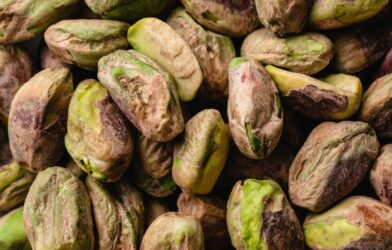It seems the American diet has a hidden cost, and it’s not just on our waistlines. It’s in our guts. For years, the idea of a “leaky gut” was dismissed by much of the medical community. But a groundbreaking new study from Penn State College of Medicine is providing compelling evidence that this condition is very real and that a specific, single strain of probiotic bacteria may hold the key to a powerful new treatment for inflammatory diseases.
The findings, published in The American Journal of Pathology, suggest that a strain of probiotic called Bifidobacterium bifidum BB1 can not only strengthen the intestinal barrier but also protect it from the very inflammation that causes it to break down. This isn’t just about general gut health; this is a precise, targeted approach that could one day be a game-changer for people with debilitating conditions like inflammatory bowel disease (IBD), which includes Crohn’s disease and ulcerative colitis. In a world where treatments often have serious side effects, the idea that a simple, naturally occurring probiotic could be a therapeutic option is a monumental step forward.
A Look Inside Your Gut
Your gut is lined with a single layer of cells held together by “tight junctions.” These junctions are like the sealed seams of a waterproof jacket, keeping the rain out. In your gut, these seams are a critical barrier, allowing essential nutrients to pass through while blocking harmful substances—like bacterial toxins and other waste products—from leaking into your bloodstream and causing trouble.
For millions of Americans with IBD, that barrier has some serious holes. In these patients, the tight junctions become weak and “leaky,” allowing a flood of noxious substances to escape into the body. This triggers an inflammatory response, a key characteristic of diseases like IBD. A particularly nasty troublemaker in this process is a protein called tumor necrosis factor-alpha (TNF-α). When TNF-α levels are high, it’s like a wrecking ball hitting the tight junctions, causing them to break apart and the gut to become even more permeable and inflamed.
How This Tiny Probiotic Packs a Big Punch
Scientists have long known that probiotics can have a beneficial effect on the gut. After all, they’re the friendly bacteria that help with digestion. However, the exact way a probiotic could directly address a leaky gut remained a mystery. Dr. Thomas Y. Ma and his team at Penn State set out to uncover just that, focusing on the specific BB1 probiotic strain.
The researchers conducted experiments using both lab-grown human intestinal cells and live mice. In the lab, they exposed the cells to TNF-α to make them “leaky” and then added the BB1 probiotic. The BB1 was able to prevent the TNF-α from breaking down the tight junctions. The researchers confirmed this was a unique ability of BB1 by showing that a different probiotic strain, BB4, had no effect.
The team then repeated the experiment in mice, giving them the BB1 probiotic before injecting them with the inflammatory protein TNF-α. Just like in the cell studies, the BB1 probiotic protected the mice from the inflammation.
So, how does it all work? The paper reveals a fascinating cellular mechanism. Think of the inflammatory protein TNF-α as a message telling the body to start an inflammatory response. In the gut, this message is received by a series of other proteins that ultimately lead to the tight junctions breaking apart. The BB1 probiotic, however, acts as a counter-signal. It activates a different protein called PPAR-γ, which then steps in to shut down the inflammatory signal. The result? A stronger, healthier gut barrier that is resistant to inflammation.
The Future of Gut Health
This study moves beyond just proving that a probiotic can help with a leaky gut. It shows a clear path for developing new therapies that address the root cause of certain inflammatory diseases, rather than just managing symptoms. The research suggests that BB1 is a “precision probiotic strain” with a unique ability to enhance the intestinal barrier and protect against inflammation. The path to a healthier future may not be in a powerful pharmaceutical drug, but in a simple, naturally occurring bacteria.
Paper Summary
Methodology
The researchers used both in vitro (lab-grown human intestinal cells) and in vivo (live mouse) models to study the effects of the probiotic strain Bifidobacterium bifidum BB1. In the in vitro experiments, Caco-2 intestinal epithelial cell monolayers were used to measure the effects of the probiotic on tight junction (TJ) barrier function and permeability. They measured the electrical resistance and the movement of a marker called inulin to determine how “leaky” the cells were. For the in vivo studies, both female and male C57BL/6J wild-type mice, aged 9 to 12 weeks, were used. The mice were either given the BB1 or BB4 probiotic strains via oral gastric gavage before being injected with a pro-inflammatory protein (TNF-α). Intestinal permeability was then measured using a specific marker. All in vitro experiments were repeated at least three times, and the animal studies were performed with three to six animals per experimental group.
Results
The study found that the probiotic strain Bifidobacterium bifidum BB1 caused a significant improvement in the intestinal barrier function and protected against the increase in permeability induced by the inflammatory protein TNF-α. This effect was shown to be “strain-specific,” as another probiotic strain, BB4, did not have any effect on the intestinal tight junction barrier. The researchers also uncovered the specific intracellular mechanisms by which BB1 works: it prevents the activation of key inflammatory proteins (NF-kB p50/p65) and a gene (MLCK) that would otherwise lead to the opening of the gut barrier. This protective effect is mediated by the activation of another protein called PPAR-γ.
Limitations
The study primarily utilized in vitro cell cultures and an in vivo mouse model. While these models are crucial for understanding the underlying biological mechanisms, the results may not directly translate to human clinical outcomes. The number of animals used in the in vivo study was also small, with only three to six animals per group, which is typical for this type of preclinical research but can be a limitation for generalizability.
Funding or Disclosures
The research was supported by grants from the National Institute of Diabetes and Digestive and Kidney Diseases and the J. Lloyd Huck Chair in Medicine from Penn State College of Medicine. The authors list no other disclosures.
Paper Publication Info
The paper, titled “Bifidobacterium bifidum Strain BB1 Inhibits Tumor Necrosis Factor-a-Induced Increase in Intestinal Epithelial Tight Junction Permeability via Toll-Like Receptor-2/Toll-Like Receptor-6 Receptor Complex-Dependent Stimulation of Peroxisome Proliferator-Activated Receptor and Suppression of NF-кВ р65,” was published in The American Journal of Pathology, Vol. 194, No. 9, in September 2024. The DOI is












